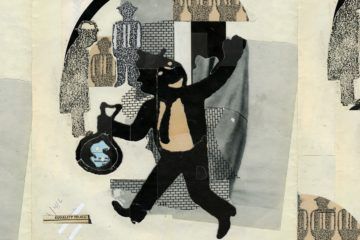Adolph Reed Jr. in The New Republic:
 This year marks the seventy-fifth anniversary of publication of Black Metropolis, St. Clair Drake and Horace R. Cayton’s landmark study of Chicago. Black Metropolis appeared as World War II neared its end, with U.S. political leaders fiercely debating the best ways to bring about civilian reconversion and reconstruction. Drake and Cayton recognized that the outcomes of those debates would be critical for their fellow black Americans in the postwar decades. A pair of other influential studies published around the same time, An American Dilemma: The Negro Problem and Modern Democracy by Swedish sociologist Gunnar Myrdal, and What the Negro Wants, an anthology edited by Rayford W. Logan, likewise affirmed the central challenges of racial equality in the postwar world, stressing continued expansion of New Deal social-wage policy and the steady growth of industrial unionism as keys to black advancement.
This year marks the seventy-fifth anniversary of publication of Black Metropolis, St. Clair Drake and Horace R. Cayton’s landmark study of Chicago. Black Metropolis appeared as World War II neared its end, with U.S. political leaders fiercely debating the best ways to bring about civilian reconversion and reconstruction. Drake and Cayton recognized that the outcomes of those debates would be critical for their fellow black Americans in the postwar decades. A pair of other influential studies published around the same time, An American Dilemma: The Negro Problem and Modern Democracy by Swedish sociologist Gunnar Myrdal, and What the Negro Wants, an anthology edited by Rayford W. Logan, likewise affirmed the central challenges of racial equality in the postwar world, stressing continued expansion of New Deal social-wage policy and the steady growth of industrial unionism as keys to black advancement.
Against this backdrop of social-democratic policy debate, Drake and Cayton laid out a rich account of changes in Chicago’s black population between the 1840s and the early 1940s. They focused especially on the evolving patterns of employment and housing, and the overlapping dynamics of racial discrimination, political incorporation, and structured opportunity—what they describe as the Job Ceiling—in the 1930s and 1940s.
More here.
